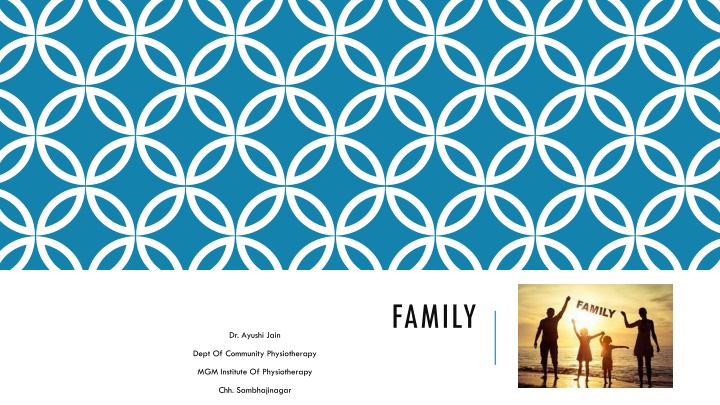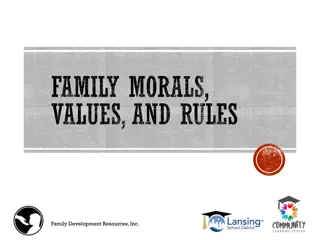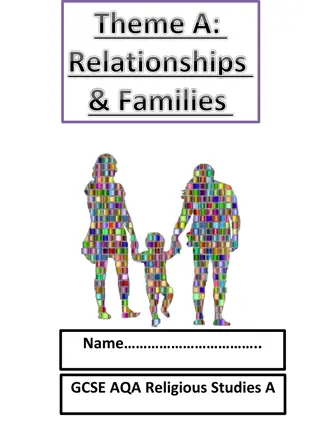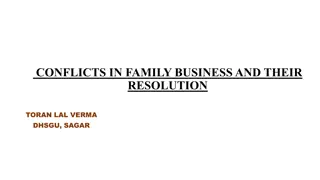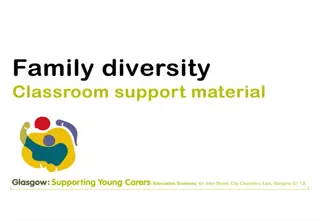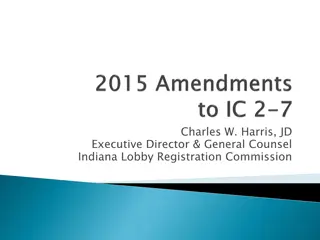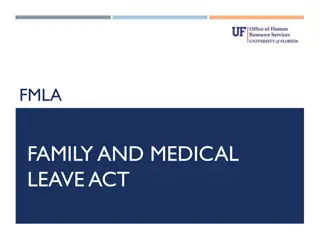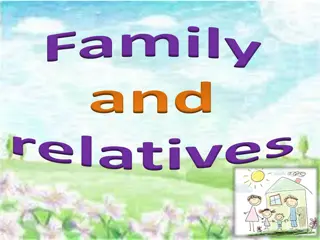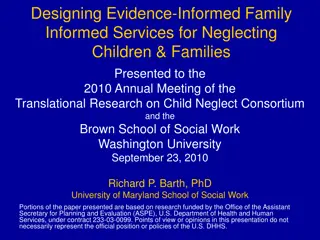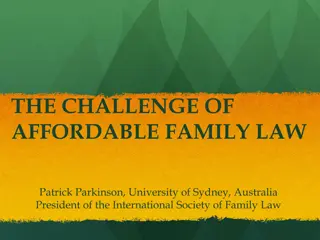FAMILY
Family is a fundamental social unit crucial for safety, security, child-rearing, and cultural transmission. Defined by enduring relationships, the family provides emotional support, financial provision, and a foundation for socialization. This article explores the general characteristics and importance of family, emphasizing its role as the first institution in society.
Download Presentation

Please find below an Image/Link to download the presentation.
The content on the website is provided AS IS for your information and personal use only. It may not be sold, licensed, or shared on other websites without obtaining consent from the author.If you encounter any issues during the download, it is possible that the publisher has removed the file from their server.
You are allowed to download the files provided on this website for personal or commercial use, subject to the condition that they are used lawfully. All files are the property of their respective owners.
The content on the website is provided AS IS for your information and personal use only. It may not be sold, licensed, or shared on other websites without obtaining consent from the author.
E N D
Presentation Transcript
FAMILY Dr. Ayushi Jain Dept Of Community Physiotherapy MGM Institute Of Physiotherapy Chh. Sambhajinagar
INTRODUCTION Family is a group of people organised on the basis of natural bond, i.e. love and affection. It is the fundamental social unit formed in the society, which provides the safety, security, rearing of children and for fulfillment of certain human needs. It is a primary group in the society to fulfill the function of procreation and nurturing socializing the children and transmits the culture. It is a group of interacting personalities who have definite and specific roles to establish mutual relationship between the family members. Family is a sacred institution deriving sanction from religion and social traditions with myths and legends
DEFINITION A group defined by sex relationship sufficiently precise and enduring to provide for the procreation and upbringing of children Maciver The biological social unit composed of husband, wife and children Eliot and Merril
GENERAL CHARACTERISTICS 1. The family is a group defined by sexual relationship between male and female, which is sufficiently precise and enduring to provide for procreation and by bringing of children. 2. It is constituted by living together of males with females and their offspring. It establishes a permanent relationship between husband and wife through permanent sexual relationship. 3. A form of marriage or other institutional arrangement in accordance with the mating relationship is established and maintained. 4. Attachment of blood relationship among the family members. 5. It may be real or imaginary. 6. Financial provision or some economic provision shared by the members of the group to fulfill the economic needs associated with child bearing and rearing. 7. A system of nomenclature involving a mode of recognising descent.
GENERAL CHARACTERISTICS 8. Common habitation. 9. There is a cultural variability in the family forms. Eg: The different forms of mating relationship, selection of mates. 10. Universality. 11. It fulfills emotional needs of the individual. 12. It is a formative agency of socialisation. 13. Will have limited members. 14. It controls the activities of the members with in the society. 15. It may be permanent or temporary in nature. 16. The family members will have certain responsibilities, duties and obligations; the happiness in the family depends on how best the members discharge their responsibilities in coordination with the other individuals of the family. 17. The family is peculiarly guarded both by social taboos and by legal regulations.
IMPORTANCE OF FAMILY First institution Role of adults Children learning Personality development Free expression of thoughts Love, affection etc
SOCIAL CONTROL IN FAMILY Society is a web of relationship and a system of rights in order of duties and responsibilities in an organised manner to maintain their relation properly, which avoids conflicts between members of society and allows them to develop as compromise to each other.
FUNCTIONS Fulfills the biological function. Replacement of species through the propagation of progeny. Social repetition where the sex relations are controlled and regulated. Family is a medium or sex excretion and its regulation. Provision of food, housing and clothing which are necessary to the existence of human life.
Essential function Non essential funtion Satisfaction of sexual stable relationships; procreation The Government or State agency. Production and rearing of children. Religious functions. Eg: Church, Temple and Masjid Provision of home. Economic function banks, financial corporations, insurance offices. Educational school Recreational cinema hall, clubs. Care of sick hospital.
IMPACT OF SICKNESS ON THE FAMILY Economic burden Disturbance in family routine activities Disruptive effects Qol and relations affected Leisure time
ROLE OF FAMILY IN HEALTH AND SICKNESS One of the essential functions of the family is to maintain health status for its total members. Adequate and timely distribution of nutritious food, good life style pattern, maintenance of personal and environment hygiene, provision of wholesome and safe drinking water, sanitation measures, effective communication, intimate interpersonal relationship, are some of the measures for preservation of health status. During sickness of the individual, the members of the family take additional care to meet the primary and secondary needs of the client. Eg: Assisting in daily living activities, supportive and protective measures, counselling, etc. The economic level and educational status of the parents also plays effective role in providing promotive, protective and remedial measures for the child at the time of need. Lower socio-economic status, illiteracy, ignorance of parents may predispose for the prevalence of disease occurrence.
When the client is hospitalised with acute illness or chronic illness, the family primary group will support the client, takes active participation in curative measures. The group fulfills the physiological needs like food, water, (hunger and thirst); rest and sleep; housing, clothing, love and belonging needs (showing attention, concern, meeting the client s physical needs with affection and bondage); safety and security needs for the fullest recovery by fulfilling the emotional needs, and also fulfills economic needs of client and their family
FAMILY PLANNING A way of thinking and living that is adopted voluntarily upon the basis of knowledge, attitudes and responsible decisions by individuals and couples in order to promote the health and welfare of the family group and thus contribute effectively to the overall social development of a country WHO, 1977
It refers to practices that help individuals or couples to attain objectives: To avoid unwanted births To bring about wanted births To regulate the intervals between pregnancies To control the time at which births occurs in relation to the ages of parent To determine the number of children in the family.
SCOPE OF FAMILY PLANNING SERVICES Proper spacing and limitation of births Advice on sterility Education for parenthood Sex education Screening for pathological conditions related to reproductive system Genetic counselling Premarital consultation and examination Carrying out pregnancy test Marriage counselling Preparation of couples for the arrival of their first child Providing services for unmarried mothers Teaching home economics and nutrition Providing adoption services.
